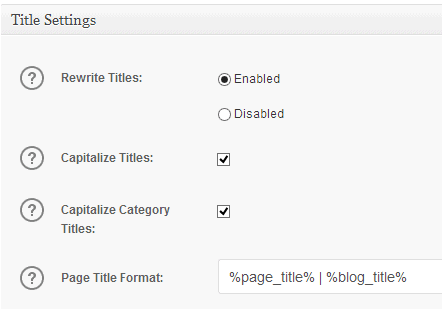In the ever-competitive world of online content, getting your SEO right can make all the difference between being on the first page of search results or being buried beneath your competitors. One of the most critical aspects of on-page SEO is selecting effective focus keywords. These are the keywords you want each page or blog post to rank for in search engines. Fortunately, for WordPress users, there are numerous tools and plugins that can help you find, manage, and optimize focus keywords effectively.
Whether you’re a beginner or a seasoned content creator, using the right WordPress tools can significantly streamline your SEO efforts. Below is a curated list of the best tools and plugins that will help you find and manage focus keywords in WordPress—and boost your search engine rankings in the process.
1. Yoast SEO
Yoast SEO is one of the most popular SEO plugins for WordPress, and for good reason. It offers an intuitive interface to add and manage your focus keywords for each post or page. With its real-time analysis, Yoast provides immediate feedback on how well your content is optimized for your chosen keyword.
- Keyword Optimization: Yoast allows you to set one or multiple focus keywords (depending on the version), and it highlights how well your content aligns with it.
- SEO Analysis: Offers suggestions like adding keywords in headings, URL, meta description, and body content.
- Readability Score: Ensures your content is not only keyword-rich but also easy to understand.
Yoast also includes XML sitemap support, breadcrumb navigation, and social integration—all of which support your SEO performance.
2. Rank Math
Quickly climbing the ranks (pun intended), Rank Math is another all-in-one SEO plugin that provides a powerful focus keyword toolset—often compared with Yoast, but with more features available for free.
- Multiple Focus Keywords: Even in the free version, Rank Math allows you to optimize for up to 5 focus keywords per post.
- Keyword Suggestions: Integrates with Google to offer keyword suggestions as you type.
- 30+ Detailed SEO Tests: Identifies keyword placement, keyword density, schema markup, and more.
It even provides integrations with tools like Google Analytics and Google Search Console right from your WordPress dashboard.

3. SEMrush SEO Writing Assistant
This plugin is developed by the well-known digital marketing platform SEMrush and offers real-time content analysis based on your selected focus keywords.
- SEO Recommendations: It evaluates your content for readability, originality, tone of voice, and most importantly, keyword optimization.
- Top 10 Benchmarking: Compares your content with the top-ranking pages for your selected keyword, giving you insights into what works.
- Easily Accessible: Available within the WordPress editor as well as a Google Docs plugin.
If you already use SEMrush for keyword research, integrating this plugin into your WordPress setup can be a significant payoff in productivity and optimization quality.
4. Ahrefs SEO Plugin
Ahrefs is known as one of the most powerful SEO tools globally, and their WordPress plugin enables site audits and keyword tracking seamlessly within your dashboard.
- Focus Keyword Tracking: Tracks keyword presence, including headings and metadata, and highlights pages needing improvement.
- SEO Health Score: Offers actionable feedback such as missing tags, broken links, and content duplication.
- Integrated Data: Pulls from Ahrefs’ extensive index for deep keyword analysis.
Although somewhat technical, the detailed insights make Ahrefs ideal for marketers and SEO professionals who want more control over their keyword strategies.
5. SEOPress
A user-friendly yet powerful plugin, SEOPress brings comprehensive control over keywords and on-page SEO without bombarding you with complexity.
- Custom Focus Keywords: Easily input keywords and receive optimization tips within the editor.
- Google Suggest Integration: Helps you find long-tail keywords and related topics directly within your writing panel.
- White-label Support: Perfect for agencies who manage client websites and want branding control.
SEOPress is a budget-friendly, effective option for users who want flexibility and scalability.
6. Keyword Tool.io
Although not a WordPress plugin, Keyword Tool.io deserves a mention because of its exceptional keyword discovery features. You can use it to research focus keywords and copy them into your WordPress editor for posts and pages.
- Autosuggest API: Based on Google, Bing, YouTube, and Amazon search queries.
- Long-tail Keyword Discovery: Essential for blog content and niche targeting.
- Question-Based Keywords: Great for targeting featured snippets and voice-search queries.
For serious content creators, using Keyword Tool.io in tandem with WordPress plugins like Rank Math or Yoast can give your content a sharper edge.

7. Surfer SEO
If you’re looking to take your keyword strategy one step further, Surfer SEO has a plugin that integrates with WordPress and helps you write content powered by data-driven keyword insights.
- Keyword Density Recommendations: Ensures your content hits the sweet spot without over-optimization.
- Secondary Keyword Suggestions: Brings LSI (Latent Semantic Indexing) keywords into play for a more comprehensive keyword strategy.
- Top-Page Correlation: Compares your keyword usage and topics against currently top-ranking pages.
Ideal for SEO agencies and power users, Surfer SEO helps you blend data and content seamlessly.
Tips for Using Focus Keywords Effectively
Choosing and managing focus keywords isn’t just about stuffing them into your text. It involves thoughtful research, strategic placement, and constant iteration. Here are some tips to get the most out of your focus keyword tools:
- Do Thorough Research: Use tools like SEMrush, Google Keyword Planner, or Ahrefs to find high-volume, low-competition keywords.
- Stick to One Main Focus Keyword: Especially for beginners, it’s easier to optimize effectively around one keyword rather than trying to juggle multiple.
- Use Variations and Synonyms: This prevents keyword stuffing and makes content more readable and semantically rich.
- Monitor Performance: Use Google Analytics and Search Console to track how well your keywords are helping pages rank.

Final Thoughts
Mastering focus keyword optimization within WordPress is easier than ever thanks to the incredible range of plugins and tools available. From beginner-friendly options like Yoast SEO to more advanced tools like Surfer SEO and Ahrefs, there’s something available for every need and skill level.
The key is to pick the tool that aligns with your goals and workflow. Once implemented, these plugins not only simplify your SEO process but also significantly boost your chances of ranking well on search engines—bringing in more traffic, leads, and ultimately, success for your website.
Choose wisely, keep testing, and remember: in SEO, the right keyword can be your golden ticket to success.
